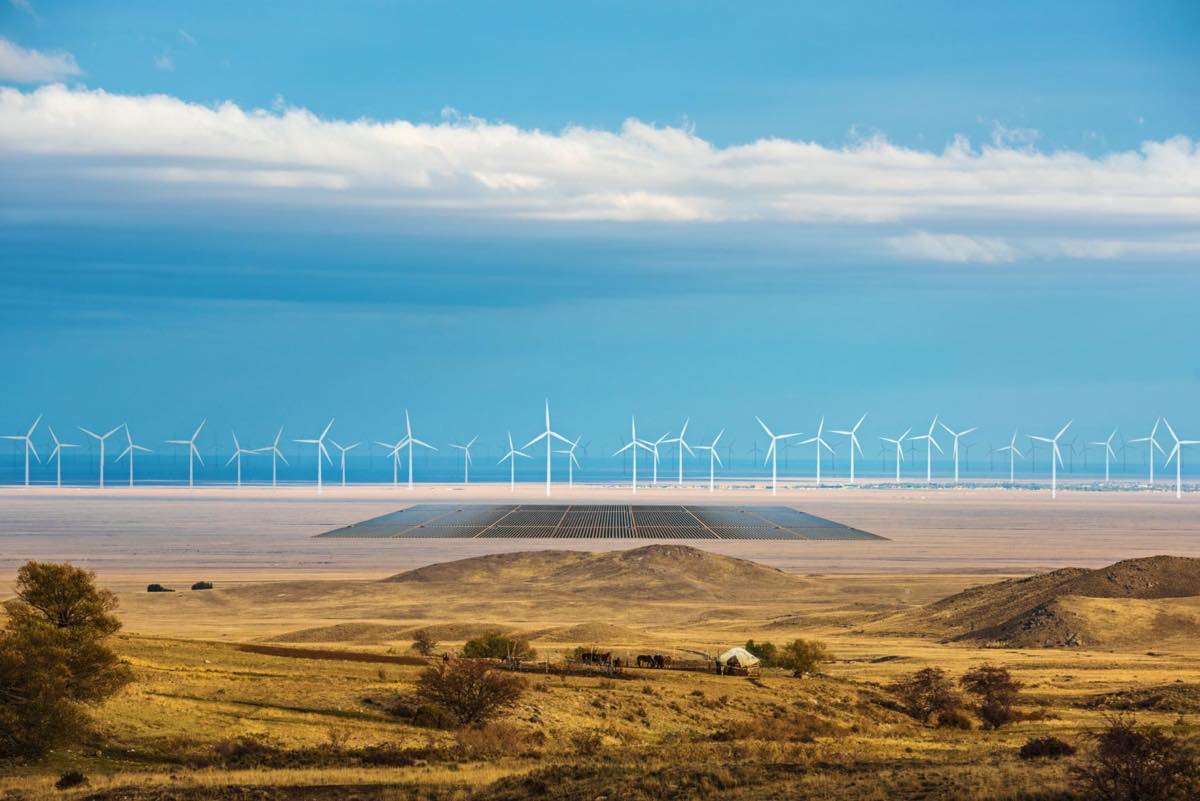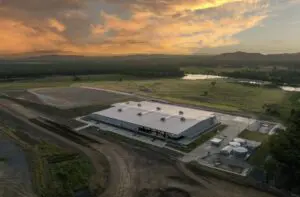German renewable energy company Svevind Energy is to partner with the Kazakh Invest National Company to build a mammoth 45GW renewable energy projected intended to produce huge amounts of green hydrogen.
The plan is for Svevind Energy to build wind and solar farms across the resource rich Kazakhstan worth a total capacity of 45GW, mainly in the steppe areas of Western and Central Kazakhstan.
The resulting green electricity will then be used to power 30GW worth of hydrogen electrolysers which will be able to produce approximately three million tonnes of green hydrogen each year.
The green hydrogen can then be exported directly to Europe’s constantly growing hydrogen market or used locally in Kazakhstan to produce high-value green products such as ammonia, steel, or aluminium.
“Svevind aims to combine the outstanding natural resources in Kazakhstan with Svevind’s long-time experience and passion in project development to supply Kazakhstan and Eurasia with green, sustainable energy and products, ‘powered by nature’,” said Wolfgang Kropp, the company’s majority owner and CEO.
“The green hydrogen facilities will lift Kazakhstan among the global leaders of renewable energy and hydrogen at very competitive, ultra-low production costs. We trust that for green hydrogen, Kazakhstan is the place to be.”
Svevind already boasts significant expertise in building large onshore wind power projects, including the Markbygden 1101 cluster of connected wind farms located in Northern Sweden. Already boasting a capacity of 1GW, the Markbygden 1101 cluster also has a further 1.5GW worth of wind turbines under construction.
Upon completion, the Markbygden 1101 cluster is expected to be able to provide approximately 8% of Sweden’s current electricity consumption.
The Svevind plan to build 45GW worth of wind and solar projects was presented to the Kazakh Government during governmental consultations in Nur-Sultan on May 18 and 19.
With the backing of the Kazakh Invest National Company, the development, engineering, procurement, and financing phases for the projects are now expected to take between three to five years, while construction and commissioning will take a further five years.
“Hydrogen energy is very productive, technological and efficient to use,” said Meirzhan Yussupov, Chairman of the Board of Kazakh Invest and member of the Board of Directors. This energy resource can be used in transport, everyday life, energy and the railway industry. All of this contributes to the advancement of low-carbon development.
“The promotion of low-carbon development is in line with the strategic direction of development of the Republic of Kazakhstan and the obligations undertaken in the framework of international agreements. Through the development of hydrogen energy, Kazakhstan can get its niche in the world supply of hydrogen.”
Kazakhstan currently has approximately 5GW of installed renewable energy capacity, dominated by nearly 3GW of hydropower and nearly 2GW of solar power.
Though the country’s renewable hydropower has been a longstanding source of electricity for the country, its installed solar capacity has skyrocketed in recent years. In 2019, for example, Kazakhstan had only 823MW of solar. A year later, though, and that had grown by nearly a gigawatt to 1,719MW.











